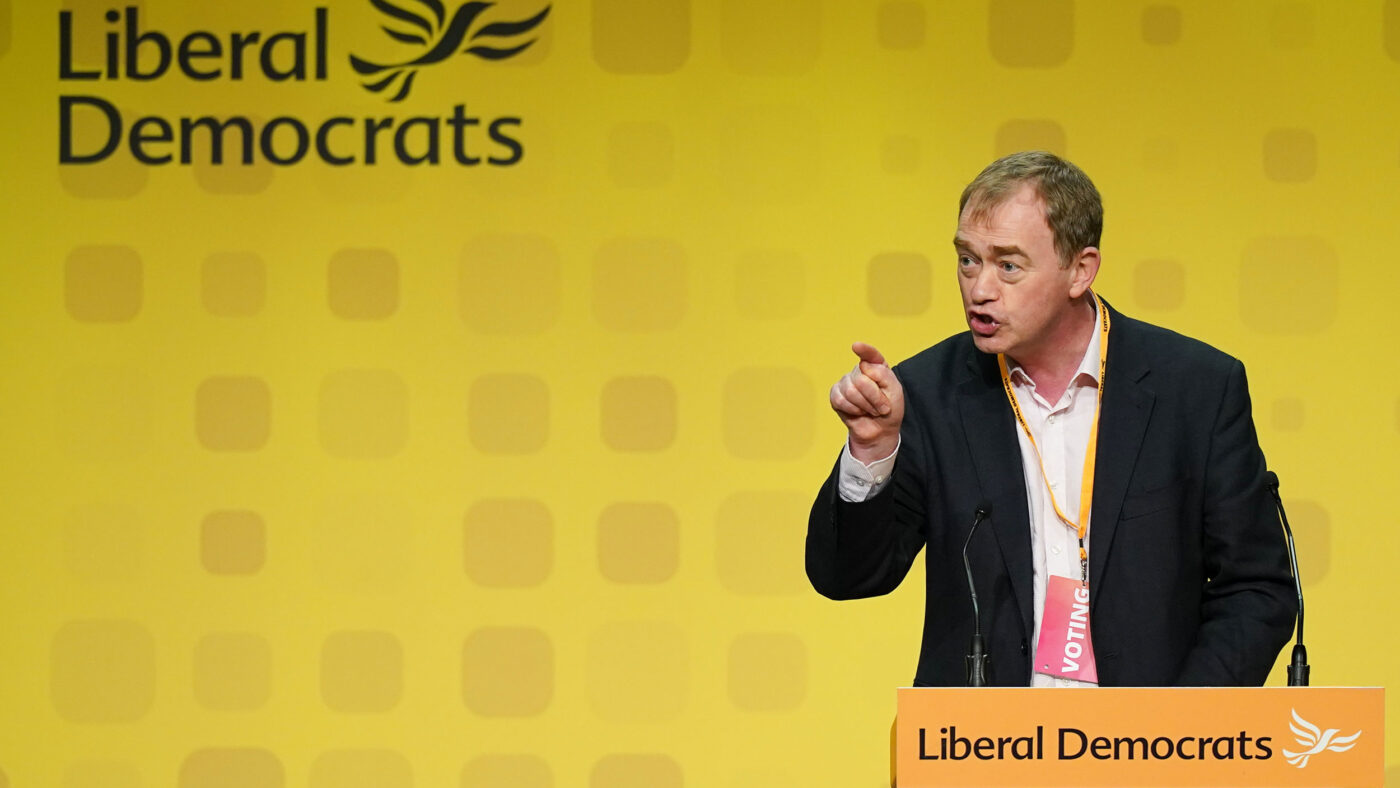Say what you like about the Lib Dems, they have a real Party Conference. Debate takes place in the main hall, rather than being banished to the fringe. Disagreements are openly expressed. The activists are the least deferential of any Party, appeals from the leadership for unity are futile.
Perhaps a few days of candour by the seaside in Bournemouth is a necessary antidote to a year of duplicitous campaigning. These stalwarts head from one by-election to another pushing leaflets through letterboxes featuring misleading bar charts and making promises that contradict the pledges offered elsewhere. All the time a pious air of moderation is exuded. They get away with it as the media and the other political parties feel they have better things to do than challenging them – which is, I suppose, the ultimate insult.
The most important issue we face is the housing shortage. So it is to the credit of the Lib Dems that they debated this and rightly concluded that the supply needed to be increased by allowing more development. They voted to keep a target of 380,000 new homes a year, which the leadership had been keen to ditch.
Significantly it was the Young Liberals backing the target and angrily demanding that more homes be built.
The policy is far from perfect. It would be an advance on the Government’s target of 300,000 new homes a year, and could help ease planning restrictions on new homes – local authorities without a target can just say no to everything.
The amendment from the Young Liberals stated that ‘conference believes that local housing targets need to exist as part of delivering an overall national target; local and central government share responsibility for delivering the housing we desperately need. Local Planning Authorities should co-operate at regional or sub-regional level to ensure that they deliver homes where they are needed.’
The leadership denounced this as a ‘developers charter’. But local authorities still have the ability to decide what is built where, provided they reach their local target. It’s only if they fail to do so that developers can appeal to be allowed to go ahead without such constraints.
Another argument, from Sir Ed Davey, was that they would instead have a target of 150,000 for new social housing a year. But that would be a phoney target. If it was to be paid for by the taxpayer, a building programme on that scale would cost billions. The only financially viable way of delivering it would be through large scale private development being allowed on condition of a proportion of social housing being built.
In any case, the aspiration from the young is not for a council tenancy. It is for home ownership. If Sir Ed can enjoy it why should the ambition be denied to the Young Liberals?
Sir Ed’s predecessor Tim Farron denounced the Young Liberals as ‘Thatcherite’ for their modest proposal to ease constraints on the housing market. A truly free market approach would go much further. It would have zoning where there was a presumption to allow development – subject to some basic standards like a design code. A proper housing market would be sure to result in far more than 380,000 new homes a year and see a sustainable fall in the cost of buying and renting.
But could Farron be on to something – in that the Lib Dems are rediscovering classical liberal causes? It always was ironic that the Lib Dems were such cheerleaders for that most illiberal and undemocratic of outfits the European Union. Historically it was the Liberals like Cobden and Bright championed free trade, in contrast to the Tory protectionists. Now we can pursue a policy of opening up trade around the world. The Lib Dems still have some EU diehards in their ranks, but they have at least resisted a policy of rejoining.
Then for years the Lib Dems have positioned themselves as the tax and spend Party. They would always support an extra penny on the basic rate of Income Tax. Now they have ditched that on the basis that we are taxed high enough already.
Gladstone’s belief was that money should be left ‘to fructify in the pockets of the people’ not taken by the state and spent for them.
Free speech was another great Liberal cause. It is hardly likely that the great former Liberal MP, John Stuart Mill, would have approved of cancel culture.
That all might seem a long time ago. But in this century we saw the emergence of the ‘Orange Book’ Liberals, including David Laws. They proposed market reforms to the NHS that few Conservatives would have been brave enough to suggest, as well as repudiating nanny statism.
The current band of scruffy but dedicated campaigners constituting the Lib Dems have a long way to go to live up to intellectual giants of classical liberalism from an earlier age. But this week they came out against the betrayal of a generation by the state-imposed constraint on new housing. That is a good start.
Click here to subscribe to our daily briefing – the best pieces from CapX and across the web.
CapX depends on the generosity of its readers. If you value what we do, please consider making a donation.


